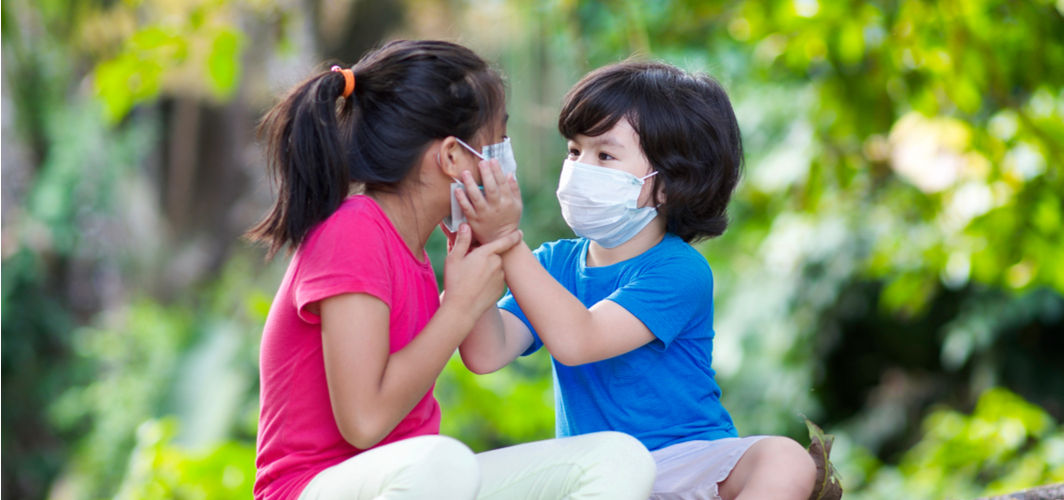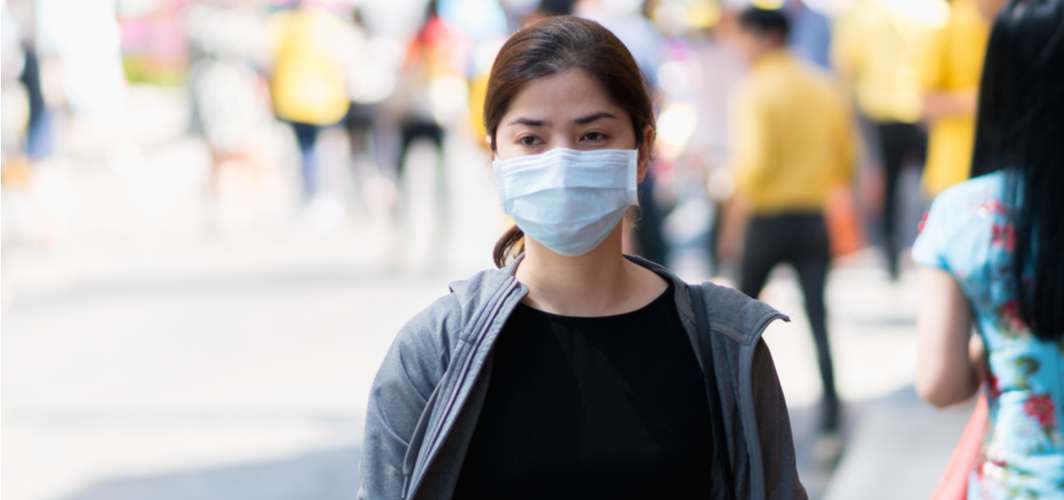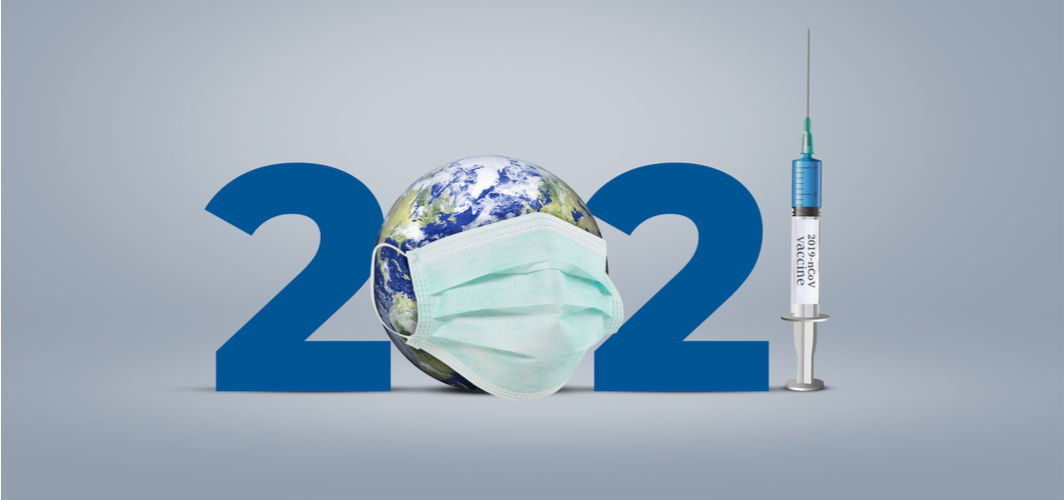Coronavirus Updates
Keeping Children Protected Against a Potential COVID-19 Third Wave
7 min read
By Apollo 24/7, Published on - 11 June 2021, Updated on - 18 October 2022
Share this article
0
16 likes

Since late May 2021, India has been witnessing a steady decline in the number of new and active cases of COVID-19. The dip in number has now put the spotlight on a possible third wave of the pandemic. For a while now, there has been a lot of discussion surrounding this topic and its impact on children and adolescents. Several experts have cautioned that children may be at greater risk in the event of a third wave.
Unlike adults, children in India are currently not eligible for COVID-19 vaccination. Although vaccine trials on kids have begun, it will be a few months before the vaccines are widely available for children. Until then, the risk of getting infected by the virus will remain. Therefore, it is important to review the risk of COVID-19 in children on an ongoing basis, understand how the symptoms might manifest, the possibility of severe disease, and ways to protect them until a vaccine is available.
Are children less likely to develop COVID-19?
According to experts, children are as susceptible to SARS-CoV-2, the virus that causes COVID-19, as adults. However, most children are less likely to experience the severe manifestation of the disease. The reduced risk of severe disease in children is ascribed to the lower expression of ACE2 receptors through which the SARS-CoV-2 enters and infects the host cells. Experts also suggest that since kids often contract the common cold, their immune systems appear to be better primed against COVID-19. Unlike adults, the immune systems of children are less likely to overreact to the virus and cause permanent damage to various body organs.
What are the symptoms of COVID-19 in children?
Although the symptoms of COVID-19 in children are similar to those observed in adults, the severity in children are generally milder. Most infected kids go on to recover within 7 to 14 days. Possible symptoms of COVID-19 in children include:
- Fever
- Cough
- Congestion
- Sore throat
- Nausea
- Vomiting
- Diarrhoea
- Abdominal pain
- Poor appetite
Like adults, children may also experience other symptoms like headaches, fatigue, muscle pain, loss of smell or taste, difficulty in breathing, and so on.
Risk of severe COVID-19 in children
Despite the lower risk of severe disease in children, some of them can fall seriously ill because of COVID-19. During the first and second waves of the pandemic, some children developed MIS-C (Multisystem Inflammatory Syndrome in Children) after 2-6 weeks of COVID-19 infection. MIS-C is a serious condition in which some organs of the body — such as the heart, lungs, blood vessels, kidneys, digestive system, brain, skin, or eyes — experienced severe inflammation.
A review analysis published in the journal The Lancet in 2020 found that COVID-infected children suffered from hyperinflammatory shock, which increases the risk of heart damage. Out of all 662 children, 71% were admitted to the ICU and 60% required medications to maintain blood pressure and fluid replacement. They further found that children can develop MIS-C even after having an asymptomatic course of COVID-infection.
The symptoms of MIS-C are skin rash, rapid heartbeat, fast breathing, redness or swelling of the lips and tongue, and enlarged lymph nodes. Emergency warning signs of MIS-C include severe abdominal pain, inability to wake up or stay awake, difficulty in breathing, and pale, grey, or blue-coloured skin, lips, and nails.
Are some children at a higher risk of severe disease than others?
Experts say that infants who are less than 12 months old are at a higher risk of severe illness because of COVID-19. The higher risk in infants may be due to their underdeveloped immune systems and smaller airway passage, which make them more likely to develop breathing issues with respiratory virus infections. Similarly, children with underlying conditions like obesity, diabetes, asthma, chronic lung disease, congenital heart disease, sickle cell disease, and genetic, neurologic, or metabolic conditions might be at higher risk of serious illness with COVID-19 than other kids.
Childhood obesity and severity of COVID-19 infection
It has been established that pediatric comorbidities play a major role in determining the severity of COVID-19 infection in children. Some studies have indicated that childhood obesity can result in serious consequences of COVID-19 infection. Some of these studies include:
- In a meta-analysis published in the International Journal of Infectious Diseases in 2020, scientists from Canada analysed 42 studies including more than 275,000 children who developed COVID-19 infection. The results of the analysis showed that children with underlying obesity are more likely to develop severe COVID-19 infection. The scientists stated that the increased amount of fat in the body exacerbates the production of local and systemic inflammation-producing cells such as Interleukin-6, and C-reactive protein (CRP), resulting in a cytokine storm. Cytokine storm increases the risk of organ damage and slows down the recovery.
- Another study published in Jornal de pediatria in 2020 concluded that increased deposition of fat in children can result in insulin resistance, high blood pressure and high levels of inflammation-producing cells in the body. Scientists found that COVID-19 infection in obese children increases their risk of developing thromboembolism (abnormal blood clot), kidney dysfunction, abnormal immune response and chronic inflammation. They further stated that obese children diagnosed with severe COVID-19 infection are more likely to require mechanical assistance for breathing.
How to protect children from getting infected by the SARS-CoV-2 virus?
There are many steps that parents can take to protect their children and themselves from contracting the SARS-CoV-2 virus and spreading it to others.
- Provide all support to help children to stay healthy, both physically and mentally. Children should take up physical activities such as walking, dancing or simply skipping a rope, in their daily schedule for at least half an hour.
- Help overweight and obese children to attain a healthy weight. Parents must encourage healthy behaviours in their children and seek professional support and guidance if required.
- Try to stay at home as much as possible unless it is absolutely necessary to go outside.
- Always wear a mask when going outdoors. Ensure that the mask is clean and worn properly at all times (or double mask).
- Maintain physical distancing in outdoor settings. Stay at least 6 feet apart from others.
- Regularly wash your hands with soap and water. A sanitiser with 70% alcohol can also be used to sanitize hands.
- Disinfect frequently touched surfaces and objects at home.
- Avoid attending public functions, avoid social gatherings, and avoid group play
- Discuss, showcase, and rehearse the importance of COVID-19 Appropriate Behavior (CAB) with children.
- Maintain an emergency kit with all the necessary medications for any comorbidities such as asthma and COPD, to prevent any flare-ups. The emergency kit must have inhaled corticosteroids, long-acting bronchodilators and anticholinergics to open the airways and improve breathing.
Besides these measures, parents can also protect their children by getting vaccinated themselves. Vaccinated parents are less likely to expose their children to SARS-CoV-2 than those who are not vaccinated.
Is there anything else that parents can do to protect their children from COVID-19?
Recently, a study conducted by researchers in the US found that children who had been vaccinated with inactivated influenza vaccine during the flu season in 2019-20 had a slightly lower risk of catching the SARS-CoV-2 virus. The study noted that these children also had a reduced risk of suffering from severe infection. A few doctors and COVID task force teams in parts of India have recommended that getting kids vaccinated against seasonal flu might offer some benefits. However, more research is needed to establish any link between flu shots and the risk of COVID-19 infection.
What should parents do if they suspect their child is exhibiting COVID-19 symptoms?
Children exhibiting mild symptoms of COVID-19 like fever, cough, and sore throat can be cared for at home. Management of mild cases at home usually focuses on preventing viral transmission through isolation, monitoring symptoms, and supportive care. On the other hand, kids with pre-existing medical conditions like asthma, chronic obstructive pulmonary disease (COPD), cardiovascular disease (CVD), diabetes, etc. may require more medical interventions. In all scenarios, a doctor must be consulted for the best medical advice and guidance.
Conclusion
The abatement of the second wave of COVID-19 in India has now put the spotlight on the potential next wave of the pandemic. The impact of a possible third wave of COVID-19 on children has assumed significant levels of public discourse.
In the absence of COVID-19 vaccines for children, parents are worried about the health and well-being of their children. Although vaccine trials have started, it will take months before the vaccines are available for children. In the meantime, parents and their children should continue to follow all COVID-19 appropriate behaviour that will keep themselves and the community safe.
If you have any questions on the Coronavirus, you can speak to our experts through an online doctor consultation.
Explore our range of Coronavirus Care and Coronavirus Protection products.
Coronavirus Updates
Leave Comment
Recommended for you

Coronavirus Updates
Can COVID-19 Cause Diabetes in Healthy People?
Various case reports have shown that people suffering from COVID-19 have developed sudden-onset diabetes.

Coronavirus Updates
PCOS and Severe COVID-19: Is There a Link?
Recent research suggests that women suffering from PCOS are also at risk of developing severe symptoms of COVID-19.

Coronavirus Updates
Does Coronavirus Spread Through the Air?
Early research suggests that Coronavirus can spread both through infected droplets as well as through contact.
Subscribe
Sign up for our free Health Library Daily Newsletter
Get doctor-approved health tips, news, and more.
Visual Stories

Covid-19 Updates: Are Things Getting Brighter?
Tap to continue exploring
Recommended for you

Coronavirus Updates
Can COVID-19 Cause Diabetes in Healthy People?
Various case reports have shown that people suffering from COVID-19 have developed sudden-onset diabetes.

Coronavirus Updates
PCOS and Severe COVID-19: Is There a Link?
Recent research suggests that women suffering from PCOS are also at risk of developing severe symptoms of COVID-19.

Coronavirus Updates
Does Coronavirus Spread Through the Air?
Early research suggests that Coronavirus can spread both through infected droplets as well as through contact.